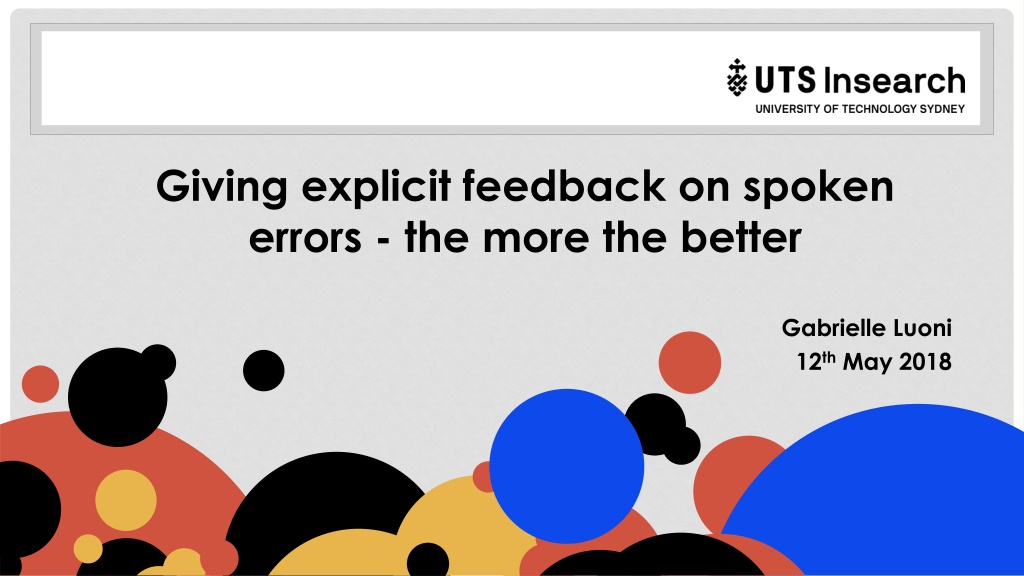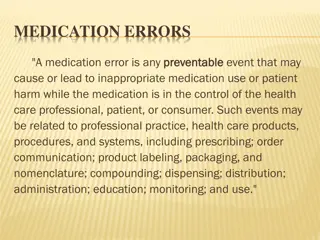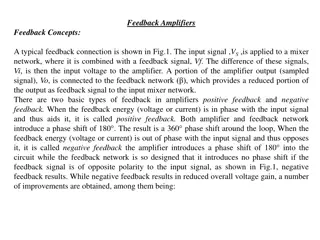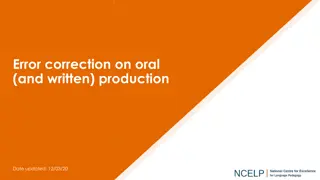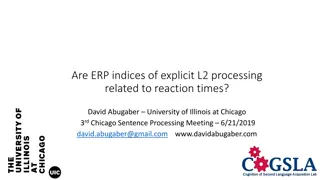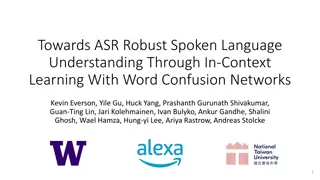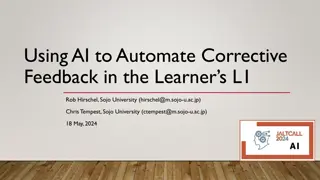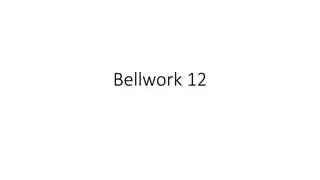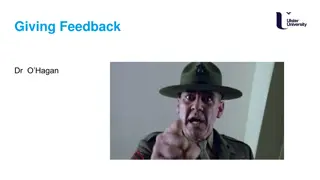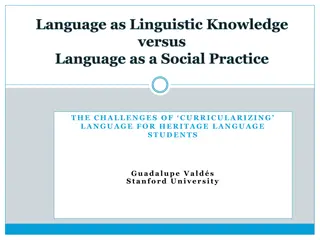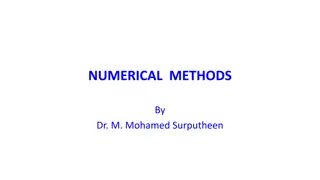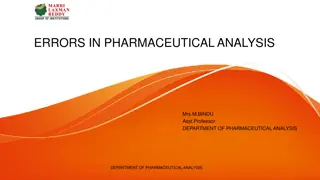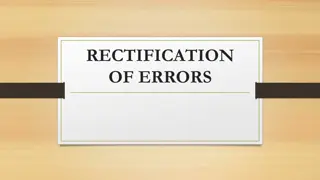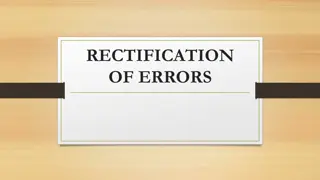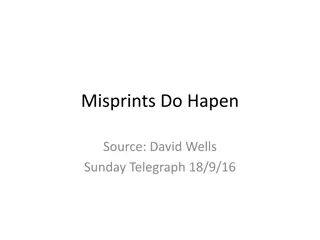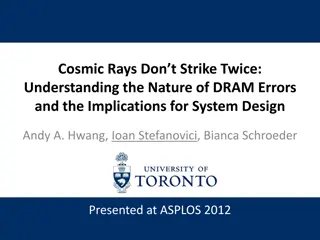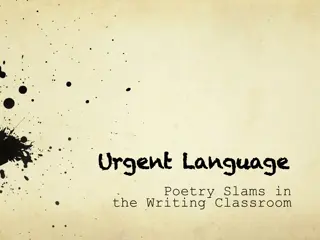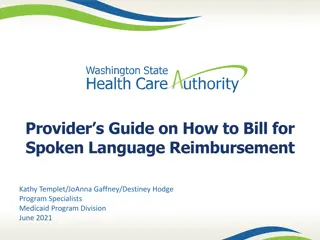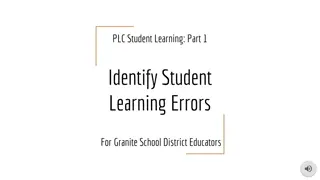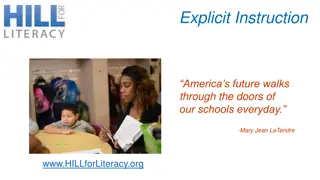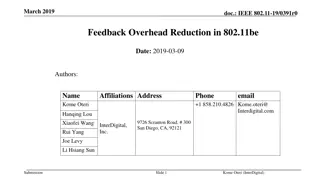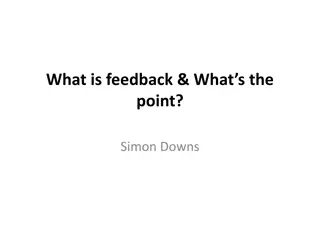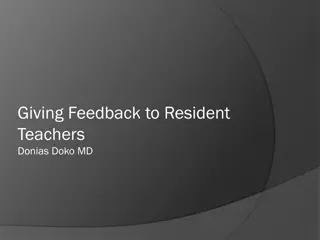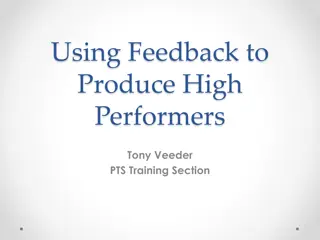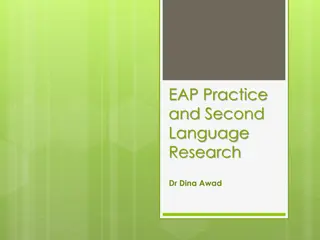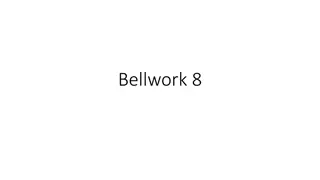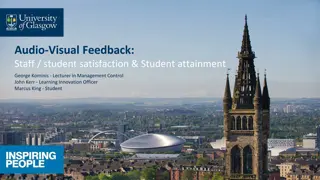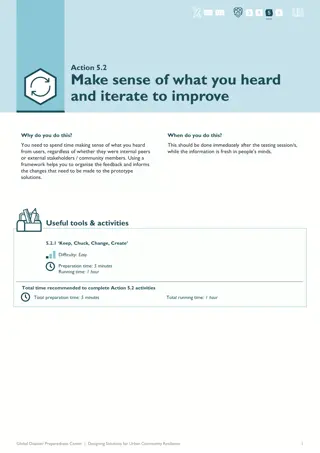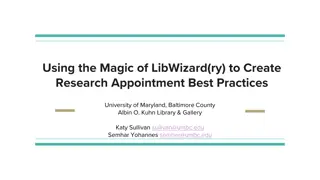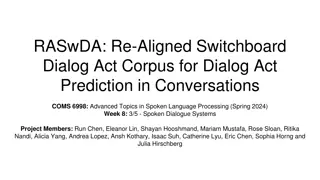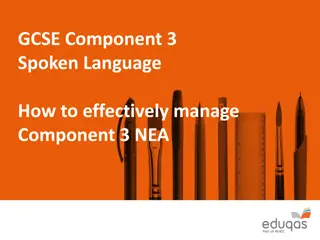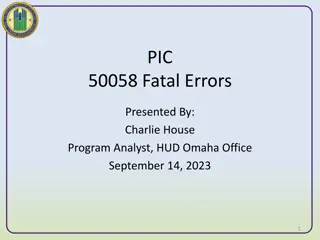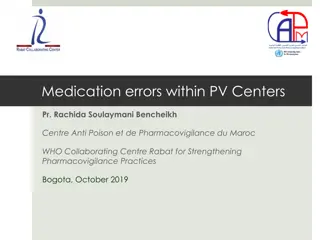Enhancing Language Learning Through Explicit Feedback on Spoken Errors
This presentation by Gabrielle Luoni explores the impact of explicit feedback on spoken errors in language learning. It delves into how teachers respond to student errors, the types of corrections used, and students' uptake of these corrections. Background reading, metalanguage examples, and research findings are shared, shedding light on effective language correction strategies.
Download Presentation

Please find below an Image/Link to download the presentation.
The content on the website is provided AS IS for your information and personal use only. It may not be sold, licensed, or shared on other websites without obtaining consent from the author. Download presentation by click this link. If you encounter any issues during the download, it is possible that the publisher has removed the file from their server.
E N D
Presentation Transcript
Giving explicit feedback on spoken errors - the more the better Gabrielle Luoni 12thMay 2018
2 OVERVIEW OF THIS PRESENTATION Overview of previous research Background reading Metalanguage Action research questions The three stages of the research Conclusions and implications Questions and discussion time
3 FROM MY PREVIOUS RESEARCH How do teachers respond to students spoken errors? Ignoring Implicitly correcting Explicitly correcting Hamayan & Tucker (1980)
4 IMPLICIT / EXPLICIT CORRECTION S: He s looking for some file. T: He s looking in a file. (implicit correction) S: He s plugging into the car. T: We say pumping the gas. (explicit correction)
5 OTHER AREAS OF INTEREST What kind of errors do teachers respond to? How do students respond to these corrections? Uptake i.e. students response to the corrections: S: He s plugging into the car. T: We say pumping the gas S: Pumping the gas. (uptake) Q
6 OVERVIEW Teachers responses % Students uptake (ratio) Students uptake (%) Ignoring 43% - - Implicitly correcting 44% 40:73 54.7% Explicitly correcting 11% 18:19 94.7%
7 SOME DISCOVERIES FROM BACKGROUND READING Ignoring / Implicit / Explicit Lyster & Ranta (2007) state explicit correction as a reformulation of a student utterance plus a clear indication of an error. Sheen & Ellis (2011, cited in Lyster et al 2013) take this a step further by including an emphasis on metalinguistic explanation. explicit correction + metalinguistic explanation
8 EXAMPLES OF METALANGUAGE I USE singular and plural verb agreement reporting verbs wrong word tense word form pronunciation body language volume intonation pace stress pause
9 FOR E.G. You made a: verb agreement error when you said nuclear energy have, it should be nuclear energy has singular / plural error: Wind powers should be wind power word form error: The economic of the country. Economic is an adjective and in this situation you need a noun, so it should be .? [you used reporting verbs well when you said that Wenna suggests ]
10 THE ACTION RESEARCH QUESTIONS 1.When students corrected their peers did they use metalanguage? 2. How did students feel about being corrected? 3. Does feedback work?
11 THE INTERVENTION Stage 1: The intervention: when a student spoke to the whole class, I recorded them while noting any spoken errors made - after they had finished speaking, I gave them feedback using metalanguage
12 THE INTERVENTION Stage 2: The last teaching day: -students were put in assigned groups of 3 to practice for upcoming speaking exam - one student spoke, the other 2 listened and then gave feedback - students used phones to record interactions to send files to me later
13 HOWEVER This is where things somewhat collapsed... Consequently I only collected a few snippets of student-to-student feedback. How about word form? You need to improve your eye contact. You don t need to talk too fast.
14 THE INTERVENTION Stage 3: The survey questions: Was the teacher s feedback helpful? When the teacher gave feedback how did you feel? When the teacher gave feedback to classmates what did you do? How did you feel giving feedback to classmates?
15 WAS THE TEACHER S FEEDBACK HELPFUL? Scale of to 4B - - - 5 10 FFE1 - - - 3 20 Total - - - 8/38 30/38 % 0 0 0 21 78
16 WHEN THE TEACHER GAVE FEEDBACK HOW DID YOU FEEL? Response Nervous & uncomfortable Neutral Eager to hear Gained a lot 4B 0 FFE1 0 Total 0 % 0 0 2 12 8 X 15 8/38 2/14 27/38 21 14 71
17 WHEN THE TEACHER GAVE FEEDBACK TO CLASSMATES WHAT DID YOU DO? Response Didn t listen Could apply it to myself Found it interesting Gained a lot 4B 0 5 FFE1 0 15 Total 0/38 20/38 % 0 71 0 7 7/38 18 9 9 18/38 47
18 HOW DID YOU FEEL GIVING FEEDBACK TO CLASSMATES? Response Strange & uncomfortable Helped me think about own errors 4B x FFE1 5 (repeater students) 17 Total 5/24 % 20 x 17/24 70
19 WRITTEN COMMENTS FROM STUDENTS Pronunciation was most beneficial for me because I get chance to improve on it and it increase to know voccabulary. I feel good when I give feedback to my classmates because it helps them to improve in thier task during speaking. I got opportunity to learn about pronunciation as well as vocabulary. It was really beneficial to me. (cont )
20 MORE WRITTEN COMMENTS FROM STUDENTS Because at the begin of presentation, my tone was not good, after teacher told me, I paid attention to it, it is better now. Intonation and controlling my speed to deliver things was something that helped me. The way I talk is changed a lot. Because I usually speak like a robort. I think my grammar is good than befor.
21 AND A FEW MORE I feel good when teacher gave us feedback to our classmates. It has made us to aware of being carefully while speaking, pronunciation, greeting etc. Pronunciation was beneficial because in the presentation I feel nervous and forget to clear pronunciation. My classmate s problem might same with mine. So I could improve my speaking by my friend s problem.
22 ANECDOTAL EVIDENCE I also informally spoke to a couple of students and asked how they felt about being given feedback for their spoken errors
23 THE ACTION RESEARCH QUESTIONS 1. When students corrected their peers did they use metalanguage? 2. How did students feel about being corrected? 3. Does feedback work?
24 CONCLUSIONS & IMPLICATIONS Give students explicit feedback for their spoken errors They need it They want it
25 FURTHER RESEARCH Next time: have the student intervention work better ask students if there was any difference in receiving feedback from the teacher compared to classmate have recorded interviews with students to gain more anecdotal data
26 Do you have any experiences to share? Questions and further discussion
27 REFERENCES: Lyster R, Saito K, Sato M (2013), Oral corrective feedback in second language classrooms Cambridge Core, viewed 1 November 2017, https://doi.org/10.1017/S0261444812000365 Lyster, R. (1998) Negotiation of form, recasts, and explicit correction in relation to error ty pes and learner repair in immersion classrooms. Language Learning, vol.48 No.2 pp 183 - 218
Any further questions or comments please come and ask or contact me at Gabrielle.Luoni@insearch.edu.au
